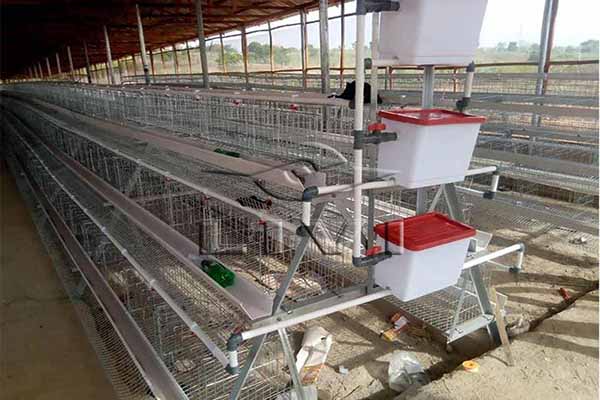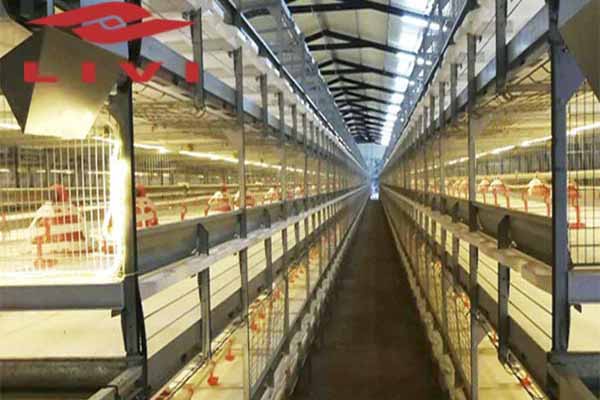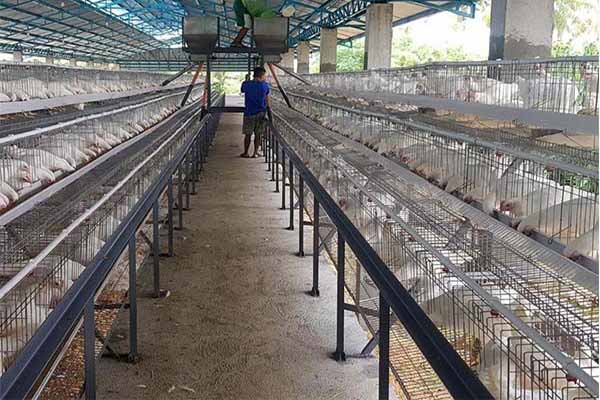Automated Chicken Farming Equipment Price in Tanzania: A Comprehensive Guide
Time : 2025-06-30
Automated chicken farming equipment has revolutionized the poultry industry, making it more efficient, productive, and cost-effective. Tanzania, being a significant player in the African poultry market, has witnessed a growing demand for such advanced farming technologies. In this article, we will explore the various automated chicken farming equipment available in Tanzania, their prices, and how they can benefit your poultry business. This guide aims to provide you with a comprehensive understanding of the market trends, equipment specifications, and the factors influencing the pricing.
Understanding Automated Chicken Farming Equipment
Automated chicken farming equipment refers to machines and systems that automate various processes in poultry farming, including feeding, watering, egg collection, environment control, and health monitoring. These systems help reduce labor costs, minimize diseases, and improve overall farm productivity. Some common types of automated equipment include:

- Automated Feeders: These systems ensure precise and timely feeding of chickens, optimizing their growth and reducing waste.
- Waterers: Automated water systems provide clean and fresh water to chickens, maintaining their hydration levels and health.
- Egg Collection Systems: These systems automatically collect eggs from the nesting area, reducing the risk of eggs being contaminated or broken.
- Climate Control Systems: They maintain optimal temperature and humidity levels, creating a comfortable environment for chickens.
- Health Monitoring Systems: These systems monitor the health of chickens, alerting farmers to potential diseases or health issues.
Automated Chicken Farming Equipment Price in Tanzania
The prices of automated chicken farming equipment in Tanzania vary based on the type, brand, features, and specifications. Here’s a breakdown of the equipment and their estimated prices:
1. Automated Feeders
Prices range from $200 to $1,500 depending on the size, capacity, and features. For instance, a small-scale automatic feeding system for backyard poultry farm ing may cost around $300, while a larger commercial feeding system for intensive poultry production can cost up to $1,200.
ing may cost around $300, while a larger commercial feeding system for intensive poultry production can cost up to $1,200.
2. Waterers
Prices for automated waterers in Tanzania start from $100 to $500. The cost depends on the number of drinker heads, material, and capacity. A simple 50-liter waterer for small-scale farms might cost around $150, while a high-capacity commercial waterer can cost up to $400.
3. Egg Collection Systems
Egg collection systems can be quite expensive, with prices ranging from $1,000 to $5,000. The cost is influenced by the type of system (e.g., belt conveyors, robotic systems), the number of nests, and the capacity.
4. Climate Control Systems
Prices for climate control systems in Tanzania vary widely, from $500 to $10,000. The cost depends on the size of the farm, the type of system (e.g., heating, cooling, ventilation), and the control mechanisms.
5. Health Monitoring Systems
Health monitoring systems are generally priced between $1,000 and $5,000. The cost depends on the features, such as temperature, humidity, ammonia, and CO2 sensors, and the level of connectivity with the farm management software.
Factors Influencing Equipment Pricing
Several factors can influence the pricing of automated chicken farming equipment in Tanzania:
- Brand and Quality: Top brands with proven reliability and durability may cost more than lesser-known brands.
- Features and Specifications: More advanced and feature-rich systems generally cost more.
- Installation and Maintenance: Some equipment requires professional installation and ongoing maintenance, which can add to the overall cost.
- Import Duties and Local Taxes: Customs duties and taxes can significantly impact the price of imported equipment.
Benefits of Us ing Automated Chicken Farming Equipment
ing Automated Chicken Farming Equipment
Investing in automated chicken farming equipment offers several benefits:
- Increased Productivity: Automation reduces manual labor, allowing farmers to focus on other critical tasks.
- Improved Health and Welfare: Automated systems ensure proper nutrition, hydration, and climate control, leading to healthier chickens.
- Reduced Disease Outbreaks: Automation minimizes human contact with chickens, reducing the risk of disease transmission.
- Cost Savings: Over time, automation can lead to significant cost savings through reduced labor, feed waste, and disease treatment expenses.
Conclusion
Automated chicken farming equipment in Tanzania offers a wide range of benefits, from increased productivity to cost savings. Understanding the various types of equipment, their prices, and the factors influencing the pricing can help you make an informed decision for your poultry business. By investing in the right automated solutions, you can take your farm to the next level and stay competitive in the dynamic poultry industry.











